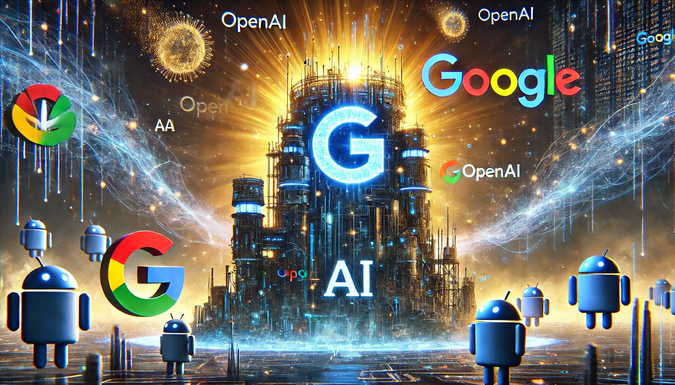AI Tech Letter
(A LARGER LANGUAGE MODEL)
(GOOGL), (META), (MSFT)
While reviewing earnings reports last week at my mountain cabin, I couldn't help but chuckle at the stream of "Google is dead" headlines flooding my inbox.
Having covered technological disruptions since the early days of the personal computer revolution, I've learned that paradigm shifts rarely happen overnight. The reality is far more nuanced.
The bears would have you believe that Google (GOOGL) is about to become the next Yahoo!, destined for the tech graveyard as AI chatbots eat its lunch.
After decades of watching tech giants rise and fall, I've developed a nose for distinguishing between genuine disruption and market hysteria. This feels a lot like the latter.
Let me share something that might surprise you: Google's search business is still growing even as ChatGPT and its AI cousins grab headlines.
We're looking at a $2.25 trillion behemoth with $95.66 billion in cash, trading at a better valuation than its big tech peers. Now THAT's what I call a disconnect between perception and reality.
Here's why the Google-is-dead crowd has it all wrong.
For one, Google isn't sitting on its hands. I've analyzed enough tech transitions to know the difference between a company adapting and one in denial.
After a brief deer-in-headlights moment when ChatGPT launched, they've gone full throttle into AI. The difference? Google can actually afford the AI arms race.
While OpenAI burns through cash faster than a Silicon Valley startup during the dot-com boom, Google generates enough free cash flow from its search business to fund its AI future.
It's like having a money printer to fund your R&D - something I wish every promising tech company had back when I was analyzing startups in the '80s.
But here's the kicker that most people miss: Google has THREE aces up its sleeve that nobody else can match.
First, they have an ecosystem that would make any tech company envious.
Google is on virtually every smartphone worldwide. They've got 8.5 billion daily searches, millions of YouTube uploads, and more data points than there are stars in the Milky Way.
Second, they have data quality that puts everyone else to shame.
While OpenAI is scrambling to buy training data (word is they're running out of public data to train on), Google's got a fresh firehose of high-quality, real-world information flowing in daily.
Third, they have cash flow that won't quit.
With a $95.66 billion war chest and money-printing core business, Google can outspend and outlast virtually any competitor.
Speaking of money, let's talk valuation.
Google's enterprise value sits at $2.18T, but here's what makes it interesting - it's actually cheaper than Microsoft on an EV/EBITDA basis.
The company's been buying back shares like they're going out of style, reducing the share count by 10% in just five years. That's a sneaky 2% annual return right there, before we even talk about price appreciation.
Sure, there are risks. New players like Perplexity are popping up faster than NFT projects in a bull market.
But having witnessed multiple tech cycles, I can tell you that unseating an incumbent with Google's advantages is about as easy as climbing Mount Everest in flip-flops.
Don't get me wrong - Google needs to execute.
Their CAPEX spending shows they're serious, but it's still below Meta (META) and Microsoft (MSFT) as a percentage of revenue. That might need to change.
But with search revenues still growing and AI integration accelerating, Google looks more like a phoenix than a dinosaur.
The bottom line? Google is a buy on dips. The death of search has been greatly exaggerated, and the company's positioning in AI is far stronger than the market realizes.
Where will Google be in five years? Nobody knows for sure, but I've got a strong hunch those AI-powered searches will be making us all look smarter while making Google shareholders richer.
Now, if you'll excuse me, I need to go check if my AI assistant can help analyze these quarterly earnings faster than I can. Some disruptions are worth embracing.


